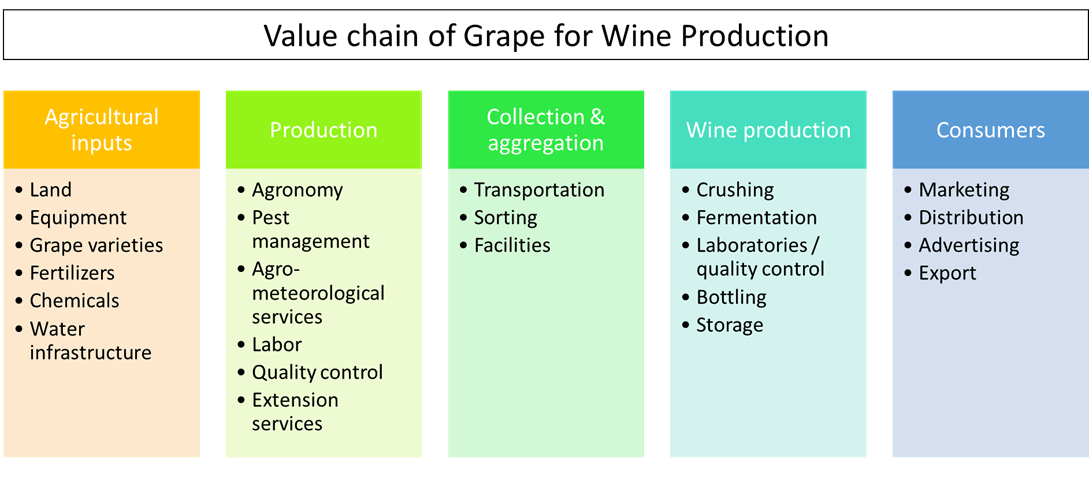CultivAid's Pillars of Development
Throughout the past decade CultivAid has been engaged in agricultural development work seeking to scale up Israeli knowledge and technology to East Africa. Through the experience of being on the ground and engaged in agricultural production the organization has developed 6 primary Pillars of Development for strengthening agricultural ecosystems.
Pillar 1: Agricultural Innovation and Technology Center (AITEC) Farms
The Agricultural Innovation and Technology Centers operates as a central mechanism for agricultural development and for transferring technology and developing knowledge. The AITEC is a medium sided farm that enables regional access to improved agricultural inputs, mechanization, supply chains, access to knowledge and has impacts on value chains.
The farms are equipped with drip irrigation, sprinklers, greenhouses, seedling nursery, innovative technologies and apply advanced agro-techniques to demonstrate the potential Israeli technology has to offer. The sites are centers for trainings and facilitate the development of an agricultural knowledge infrastructure, training expert agronomists to lead the agricultural transformation.
The farm is a logistical Hub that promotes market linkages for value chain development. The hub serves to facilitate connections, collaboration and partnerships between local and international stakeholders. The hub ensures market access to agricultural inputs and technologies while simultaneously promoting post-harvest processing and export of local production.
For more Information visit https://aitecfarm.com/
Pillar 2: Training and Internships Programs
CultivAid’s perspective is that there is no one solution for improving agricultural performance, but rather many actors and a variety of activities are required to transform an ecosystem for long term sustainable change. There is a need for both technical capacity (agricultural know-how and technical skills) and functional capacity (managerial and financial).
The transfer of technology must be accompanied by appropriate training programs that build capacity to enable wide scale adaptation. CultivAid provides a variety of basic and advanced agricultural training programs that emphasize hands on, practical work. these include:
- Vision Building and professional tours to Israel
- Professional practical Trainings that include irrigation, fruit trees, seedling development, fertilization and plant nutrition, mechanization, Crop specific agronomy, protected agriculture, nutrition-sensitive agriculture and more.
- CultivAid’s internship program for young agronomists via an intensive 6 month program. Local agronomists work side-by-side their Israeli counterparts, working together sharing knowledge and a demanding work attitude. Graduates of the program represent a new generation of agronomists, required for building the agricultural ecosystem.
- 8-month and 3-year training program, Don Bosco Technical Institute, collaboratively developed and jointly implemented with the Don Bosco Technical Institute. The program provides young people with knowledge and practical skills, along with the right altitudes for agricultural work. The program provides both theoretical and practical knowledge
Pillar 3: Value Chain Development
A value chain is defined as the full range of activities which are required to bring a product from production to consumption. Agricultural value chain is ideally composed of five main components i) Agricultural inputs and services, ii) Producers, iii) Collection and aggregation, iv) Processing or other post-harvest processing v) Market/Consumption.
CultivAid emphasizes the focus on the value chain for specialized high value crops and supports implementation and programs to ensure full operation of the value chain. CultivAid enables technical support beyond just agronomy and provides a more holistic approach that includes technical support to import technology and inputs, post-harvest solutions, establishment of agricultural processing , transportation of goods and providing a range of services to ensure the value chain is operating at optimal capacity.

Pillar 4: Private Sector Development
Since 2000 many countries in Africa have witness sustained economic growth, high rates of urbanization, rapidly accelerating technological and growing per capita GDP. In the agricultural sector the economic growth has given birth to medium scale farms and small / medium scale enterprises throughout the value chain. Medium Scale farms, while based on market economic principles are directly supporting the Sustainable Development Goals, promoting sector wide technology adoption and greater productivity, providing opportunities for acceleration of economic growth, job creation, food security and poverty reduction. CultivAid is working to support this economic shift.
CultivAid’s works to empower the private sector, through establishment of linkages to Israel’s agricultural ecosystem, domestic investors are provided access to Israel technology, knowledge and agricultural inputs. CultivAid creates partnerships with private sector entities to improve the value chain, provides technical support and extension and supply the much needed technical capacity and skills for larger scale programs. CultivAid also creates opportunities for Israeli companies and technologies to enter new markets, scaling up reliable technology to new markets.
Pillar 5: Small Farms, Cluster approach
Small farmers can only remain competitive if they are able to grow into medium scale farmers or group together into clusters. The cluster approach enables collective action between producers who aim to reduce costs by improving their bargaining position (horizontal coordination) and linking producers to market and suppliers, which corresponds to vertical coordination. The coordination mechanism of clusters enables CultivAid to work with 20-100 farmer units rather than individual farmers and thus promote collaboration and comradery between the farmers themselves.
CultivAid’s methodology is based on training skilled extension service agents who are able to provide the required technical support to farmers. The extension agents need to be properly equipped with both knowledge and technology and also record data of farmer production to enable greater planning from year to year.
Pillar 6: Regional Development planning and implementation
CultivAid supports regional and national decision makers in developing appropriate programs to enable the agricultural transformation on a regional and national scale. CultivAid provides government with the technical support to setting up extension programs, and research centers, establish and improve training programs and to develop innovative programs that can support private-sector and small holder activities.
